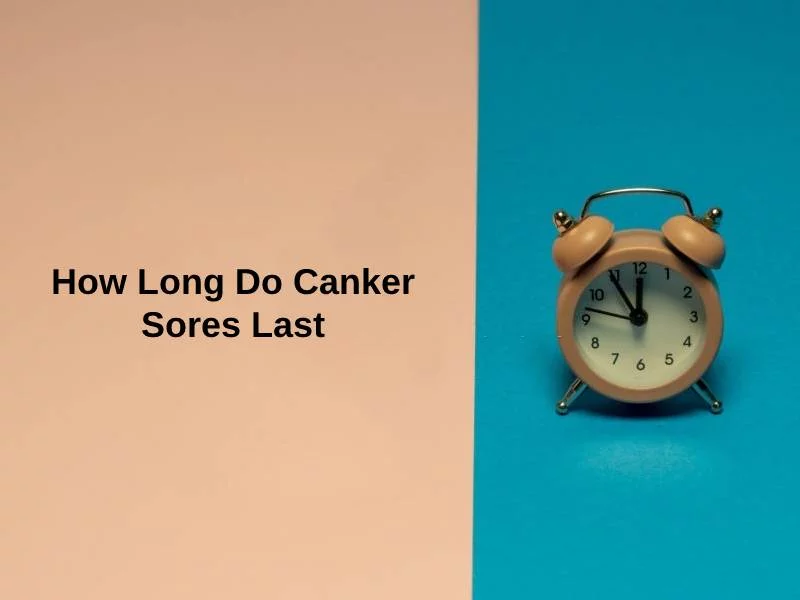Exact Answer: 7-10 Days
The canker sore is the informal name of aphthous stomatitis or recurrent aphthous stomatitis (RAS) which means the repeated formation of benign or contagious mouth ulcers. It is caused due to the Tcell-mediated immune response which is triggered by several reasons like nutritional deficiency, trauma, stress, hormonal influences, allergy, genetic predisposition, certain food, and dehydration. The canker sores have many forms and they appear on the non-keratinizing epithelial surface of the mouth which means anywhere except the attached gingiva, hard palate, and the dorsum of the tongue. The less common ulcer occurs on the keratinizing epithelial surface.

How Long Do Canker Sores Last?
The canker sores last for about 7 to 10 days in the majority of the cases, and ulceration episodes occur 3-6 times per year. It has symptoms ranging from a minor nuisance to interfering in eating and drinking. In some cases when they last for long and painfully it may cause weight loss due to malnutrition. It affects about 20% of the population of the same degree. The onset of these canker sores is during childhood or adolescence, it lasts for several years before disappearing completely.
There is no specific cure or treatment for corticosteroids that aim to reduce pain, reduce healing time and reduce the frequency of ulcerations in the mouth. The person suffering from canker sores has no detectable symptoms or signs outside the mouth. It may include the symptoms like prodromal sensations like burning, itching, or stinging. It may cause the appearance of any lesion bu some hours, and pain which is due to the extend of ulceration and can be worse by the physical contact with certain food and drinks.
The duration of the canker sore in immediate data of initial formation of ulcer is very painful, with the start of the healing process pain starts decreasing. Sometimes there is a lesion on the tongue, which is more worse as it makes speaking, and chewing uncomfortable. The ulcers on the soft palate, back of the throat, or esophagus are also very painful as one may experience painful swallowing.
| Condition | Duration |
| Minor Canker Sores | 7-10 Days |
| Major Canker Sores | 6 Weeks |
Why Do Canker Sores Last That Long?
Aphthous ulcers always begin as erythematous macules which are developed into ulcers that are covered with a yellow-grey fibrinous membrane that can be scraped away. The ‘halo’ reddish part surrounds the ulcers. The factors like size, number, location, healing time, and periodically between episodes of ulcers formation these all depend upon the subtype of aphthous stomatitis.
The cause of this problem is not clear but is thought to be multifactorial. Aphthous stomatitis is not a single entity, but a group of conditions with different causes. There is much research that was conducted to find the organisms which are the main cause of the canker sores but, the conclusion came that they are non-contagious, non-infectious, and not sexually transmitted. The cause of mucosal destruction is thought to be the result of a T cell-mediated immune response which includes the generation of interleukins and tumor factor-alpha.
The aphthous stomatitis is associated with some other autoimmune diseases, namely systemic lupus erythematosus, and inflammatory bowel diseases. Sometimes autoantibodies are not detected in most of the patients, their condition tends to resolve spontaneously with advancing age rather than worsen. The canker sores are classified as non-infectious stomatitis. It is classified into three variants like minor aphthous ulceration, major aphthous ulceration, herpetiform ulceration, RAS type ulceration.
Conclusion
A canker sore is not a major problem as it has minor symptoms and does not require any specific therapy for the treatment. The pain is tolerable and can be easily cured with a simple modification in diet like avoiding spicy food, and drinks. There is no cure for canker sores, no therapy can give you relief from pain, and reduce the healing process. Good oral hygiene is the most important factor to avoid repeated episodes of canker sores.